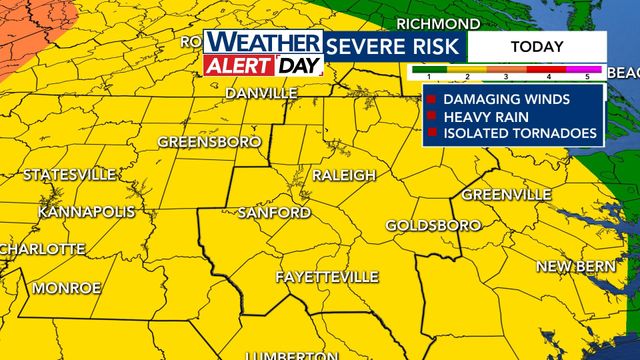CARRIE CLARK: Duke Energy's failure sheds light on a way forward

EDITOR'S NOTE: Carrie Clark is executive director of North Carolina League of Conservation Voters.
Duke Energy’s rolling blackouts across North Carolina on December 24 and 25 were the Christmas present nobody wanted. The blackouts were Duke’s response to high demand and frigid temperatures, which were not anticipated by Duke and their equipment and backup plans were unable to handle.
This is what we learned from a meeting Gov. Roy Cooper called with Duke executives on Tuesday, followed by a hearing before the North Carolina Utilities Commission on the same issue. Gov. Cooper demanded answers from Duke, as did the Utilities Commission.
Duke accepted responsibility for the outages and helped us better understand the failure. Four key takeaways emerged:
- Duke didn’t anticipate a storm of this magnitude because we haven’t experienced one before, so their forecasts were wrong;
- Duke’s gas and coal-fired power plants were less effective in extreme cold;
- Additional backup power wasn’t available from neighboring states because they were facing similar conditions from the storm;
- Duke said renewable energy resources performed as expected, and that the outages did not occur because of renewable energy generation.
This event is similar to the one that happened in my native Texas in 2021, which cost the lives of 246. We are incredibly fortunate that North Carolina didn’t suffer a similar loss of life. However, unfortunately, the same mindset prevails in power generation. North Carolina and Texas overwhelmingly rely on coal and natural gas as the primary resources to produce electricity.
Less than a week after the storm, the Utilities Commission announced its much anticipated Carbon Plan for Duke to meet the carbon reduction requirements of HB 951, signed into law by Gov. Cooper in October 2021. While not endorsing a single plan to meet these requirements, the Utilities Commission tasked Duke with exploring multiple resources, including increased solar and wind generation, along with battery storage.
One of the mandates of the law is to continue to provide the lowest cost and most dependable energy possible. Opponents of a shift to clean energy have called for more natural gas power plant construction. They say this is the lowest cost and most dependable solution.
The lessons we should learn from the storm are clear in Duke’s responses to Gov. Cooper and the Utilities Commission:
- Climate change is causing more extreme weather, which is unpredictable. We are facing more historic storms, not fewer;
- Gas and coal aren’t always dependable in extreme weather, while renewable energy with battery storage is more reliable.
Under Gov. Cooper’s leadership, North Carolina is quickly becoming a clean energy powerhouse, with high-paying jobs and associated economic development, along with the obvious climate benefits. The costs of solar and wind generation and battery storage are going down.
By signing the Inflation Reduction Act into law, President Joe Biden ensured these costs will continue to drop. In fact, a new study by the clean energy think tank RMI shows the Inflation Reduction Act makes clean energy cheaper than more than 90% of proposed gas plants.
Similarly, a study Duke commissioned from the National Renewable Energy Laboratory revealed that Duke could most economically meet the carbon reduction targets mandated by the law by tripling the proposed solar on its grid by 2030.
Fortunately, the Utilities Commission highlighted both the Duke outages and the Inflation Reduction Act in its order to Duke. When Duke presents its revised plan to the Utilities Commission in September, they will no longer be able to credibly say natural gas is the cheapest and most reliable path.
Fortunately, their Christmas failure shed light on the best way forward for our state. This storm could ultimately lead to a real gift for the people of North Carolina, not just a lump of coal.
Capitol Broadcasting Company's Opinion Section seeks a broad range of comments and letters to the editor. Our Comments beside each opinion column offer the opportunity to engage in a dialogue about this article.
In addition, we invite you to write a letter to the editor about this or any other opinion articles. Here are some tips on submissions >> SUBMIT A LETTER TO THE EDITOR









